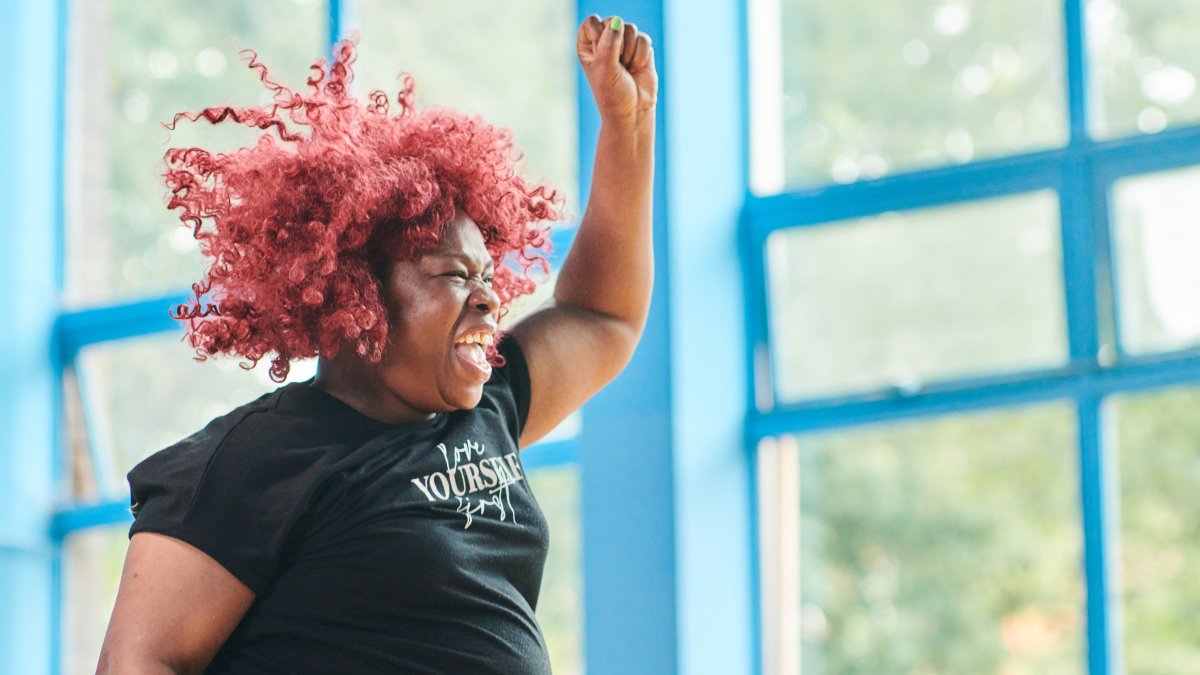More than a month ago, Melani Sanders, 46, rushed to her local grocery store to pick up a few things and return a package. When she finished, she paused and evaluated what she was wearing.
“I looked at myself in the mirror and I said, ‘Melani, you truly don’t care,’” the content creator from West Palm Beach, Florida tells TODAY.com. “I realized I had on a too little sports bra. Everything about me in that moment just said ‘(I) was on a mission.’ But it was a breath of fresh air for me.”
She felt relieved that she no longer felt self-conscious about how she dressed in public. But Sanders also realized that she didn’t care about other things that once felt so important, such as making sure her house looked spotless or doing so much for her partner or children. She’s discovered, at this point in life, that she’s not as adept at multitasking.
“It’s like putting someone else’s needs above your own or trying to balance everybody else and balance yourself … I can’t do that anymore,” she says.
Sanders attributes this change to perimenopause and the symptoms she experiences, including brain fog, insomnia, frozen shoulder, rage, depression and anxiety. These make it challenging for her to juggle everything she once did with ease.
In the store parking lot, she recorded a video sharing her thoughts and posted it on social media.
“I was speaking on just not caring and I think that I should start a club called the ‘We do not care club,’” she says. “By the time I took that 20-minute drive home and I looked at my phone I noticed something is different about this video.”
The video received “a ton of engagement” and by the next day, her follower count skyrocketed. She knew the video was relatable.
“It resonated with so many women,” Sanders says. “It’s taken on a life of its own.”
Since then, she’s created a handful of new often hilarious videos about things she feels apathetic about now. Sanders speaks in a flat tone and she often wears a pair of glasses on her face, a pair in her hair and a third hooked onto her shirt or around her neck. Sometimes she wears a neck pillow, robe or bonnet.
Sanders always begins by welcoming new members by saying: “I started the club for all the women going through perimenopause and menopause. We are simply putting the world on notice that we no longer care anymore.”
Then she announces things that she no longer cares about, which include, but are not limited to:
- Not caring if the cashier gives a senior discount because “93 cents is 93 cents.”
- Not caring if her “bra, underwear or socks match.”
- Not caring “if you are hungry. We did not lock the kitchen.”
- Not caring about chin hair or leg hair. “If we cut it, we cut it. If we don’t, we don’t.”
- Not caring if a spouse or partner has a long day. “So did we. Our day included brain fog, night sweats, insomnia, frozen shoulder and rage.”
For Sanders, the We Do Not Care movement is about accepting who she is now as she navigates perimenopause.
“I want to fulfill the needs of everybody around me and be sure everyone else is happy, but I don’t have the capacity to do it the way that I used to,” she says. “I have to learn to be OK with that.”
She believes that’s why so many women connect with what she’s sharing.
“It’s giving us permission to just be like, ‘It is what it is,’” she says.
In the comments, women share their experiences and it helps them feel less alone. They might chat about how anxious they feel now that they’re in perimenopause or how poor their sleep is with night sweats. And they bond over the inexplicable rage that sometimes comes with perimenopause.
“It’s very freeing,” Sanders says. “I want all women to feel heard.”
Some women feel relieved to see that others are sharing similar experiences, and Sanders hopes they realize that “what (they’re) going through is valid.”
“Perimenopause is something that is not discussed enough and the ways that our bodies are changing,” she says. “We are opening doors now and we are starting conversations that need to be had.”
This story first appeared on TODAY.com. More from TODAY:



